Legos make everything better. And when those little plastic bricks are used to make some of our favorite Pokemon, the coolness goes well over 9,000. Let’s take a closer look at this awesome engineering, including a peek inside the boardable mecha-type lego Pokemon!
With the end of this year fast approaching, we now enter the season of reflection for 2013 via ranking lists. In these last fleeting days let’s take a moment to see which albums, apps, shoes, books, and cockroach traps Japanese shoppers flocked to buy online in the largest numbers. Perhaps then we can form a clearer picture of what life in Japan was like for this two-thousand thirteenth year of our lord.
Gamers in Japan who have yet to place an order but are hoping to pick up Sony’s newest console when it finally launches next February may well be disappointed come launch day. Amazon Japan is already reporting that it has sold out completely, and although it is hoping to guarantee more units soon might not be able to meet demand.
As with most new must-have items, numerous retailers offering the console at considerably inflated prices are already starting to appear online. Whether or not for its own gain, Amazon Japan has urged its customers via Twitter to be aware that those paying more than 40,000 yen (US$385) for a PlayStation 4 are being ripped off.
Airline meals once had a pretty bad rap, but in-flight food has improved quite a bit since Seinfeld was wondering what its deal was. And really, isn’t it kind of amazing that you can get a hot meal at all when you are barreling through the sky at 600 miles per hour in a small metal tube?
For everyone that has ever wondered how that perfectly portioned food turns up on your tray, we’ve gone behind that scenes at the in-flight meal production center for Japan Airlines (JAL) to get the scoop.
Christmas is just around the corner, and ’tis the season to be giving! While some of us have yet to even start on our Christmas shopping, an anonymous Santa has already presented three schools in Hokkaido, Japan, with a whopping gift of over 3,000 books in total!
Japan is famous for being an onsen (hot spring) nation, so much so that a friend of mine preaches that “if you’ve never been to an onsen, then you’ve never been to Japan”. Quite the extremist, but you get the idea. Japanese hot springs come pretty close to “heaven on earth”.
But Japan’s neighboring country, Taiwan, also has some fabulous hot springs to boot! The fact that there are onsen-loving Japanese people who travel to Taiwan for a soak is sufficient to vouch for the quality of these bubbling hot baths. Here’s a list of five onsen hot spots you wouldn’t want to miss on your trip to Taiwan!
Now here’s something you don’t see every day – a bunch of enormous men in their underpants sitting in fiberglass pods that look like something NASA might fire out of a space shuttle.
Shared on Twitter earlier today by the Japan Sumo Association, these photos show some of the sumo community’s most famous faces attending a health check session prior to a series of upcoming bouts. They’re also kind of hilarious.
As part of our solemn duty of keeping our readers abreast of the latest panty-related developments, we recently brought word of the Sailor Moon lingerie developed by Japanese intimate apparel manufacturer Peach John. Unfortunately, several of the anime-inspired offerings sold out almost immediately and are currently unavailable.
On the bright side, Peach John has several other themed lingerie sets, which we, being the dedicated journalists we are, present to you today.
I recently went to a cake shop, but when the time came to order, I said, “I’ll have the soy sauce ramen with a side of fried dumplings.” Don’t worry, I haven’t lost my mind. I was just at a hot new sweets shop in Shinjuku called, Maplise, where the specialty of the house is a decadent dessert that looks like a hot bowl of noodles.
With the winter cold now upon us in Japan, we suppose it’s natural that some of us should feel more partial than usual to warm, fuzzy-looking objects — like wool felt dolls, for instance. And in that spirit, one of our reporters from our sister site Pouch decided to try her hand at making her own felt doll herself. Sounds like a nice little project that should result in a cute hand-made creation, right?
This same reporter has previously written a story about a felt-craft project gone horribly wrong that had been shared on Twitter, in which what was supposed to turn into a cute cat ended up as, well … a bizarre-looking creature that’s hard to describe accurately. Could it really be that difficult to make a decent-looking felt doll? Our reporter’s account follows.
While Japan’s most iconic alcoholic beverage is the indigenous brew known abroad as sake (and as nihonshu at home), there are Japanese winemakers as well. Many are located in Yamanashi Prefecture, where local wineries hold an annual festival which we visited this past fall.
However, the last bottle of vino we enjoyed didn’t age in the mountains of Yamanashi, or the highlands of any other Japanese prefecture for that matter. Instead, our most recently purchased wine spent seven months aging at the bottom of the sea.
In Japan, every year is marked with a single kanji character as chosen by a national vote. The kanji is meant to represent situations and global or domestic events that took place during a given year and is announced on December 12 by the head monk at Kyoto’s famous Kiyomizu Temple.
Two years ago, 絆 (bonds) was chosen to represent 2011 due to the fraternal and familial bonds that were strengthened in the wake of natural disasters around the world, including the Great East Japan Earthquake and large-scale flooding in Thailand. Last year it was 金 (gold) for the numerous first place finishes Japan achieved in 2012, including winning the gold medal in women’s soccer and possessing the world’s tallest tower upon the completion of Tokyo Skytree.
The kanji for 2013 has just been chosen, but what what does it mean?
There are some extreme flavours of ice cream out there: all the flavours of the meat rainbow. Ice cream chock-full of pork, beef, or even chicken. We’re not talking about ice cream that adds a little meat extract to approximate the taste. We’re talking about a carnivore’s wet dream, the meat ice cream that practically walks on all fours; a dessert confection that blasts chunks of meat into your mouth with every spoonful. That’s the kind of pork ice cream our Japanese RocketNews24 reporter Kuzo found in Taiwan, sampled, and wrote this article about.
Perhaps we were wrong about cats being secret geniuses plotting to overthrow the world. This video, which is receiving a lot of attention in Japan today, suggests that there is at least one member of the feline federation that is perhaps a few strands short of a cat’s cradle.
When two-year-old Chai here spots a plastic bag on the floor of her owner’s apartment, she is naturally keen to investigate. Little does she know, though, that once she climbs inside it, the bag will simply refuse to let go…
Last month, the outspoken Japanese blogger Madame Riri gave us all a lesson in how to tell whether or not a restaurant abroad serves authentic Japanese food. But let’s be honest, it takes more than tradition to make a dish delicious, and there’s something to be said for adjusting the menu to match local preferences. We’ve certainly experienced this phenomenon in the wide world of sushi!
And so, to celebrate the creation of successful Japanese eateries across the globe, here are the top 10 restaurants that serve Japanese food in foreign countries!
With the abundance of public holidays and an average of 18 vacation days per year, the stereotype of the overworked and exhausted Japanese worker may seem like a relic of the past. But a recent survey by Expedia Japan comparing the vacation schedules of 24 countries proves yet again that the stereotype is alive and well.
For the sixth year in a row, Japan came in dead last as workers are only taking an average of 39% of their annual paid leave. And perhaps unsurprisingly, Japan ranked last in worker satisfaction.
Seemingly not content with having two brand new movies out this year in the form of Kaze Tachinu and The Tale of Princess Kaguya, Japan’s Studio Ghibli has just announced that a new animated feature, Omoide no Maanii (When Marnie Was There), based on the novel of the same name by English writer Joan G. Robinson, will be hitting screens in Japan in summer 2014.
We first came across David Ury and his alleged twin brother, Ken Tanaka, after seeing their video titled “Ken Tanaka and David Ury Japanese accent training.” The video features two men of similar physical characteristics having a conversation in Japanese with very different accents. Intrigued, I found myself combing the internet for any information regarding the pair and learned that David Ury is an American actor and Ken Tanaka is his long-lost twin brother who was adopted by a family in Japan. Various videos on Ken’s helpmefindparents YouTube channel seemed to verify this information, showing Ken and David speaking to each other in the same room.
But whispers of controversy surround the brothers despite the online existence of two completely distinct people. Is Ken Tanaka actually just David Ury showing off his acting skills? We set up an interview with David hoping to find out more about the talented actor behind the perfect Japanese accent.
What we landed up with was some of the best Japanese study advice we’ve ever heard, some anecdotes about crazy adventures in Japan and an introduction to a comedic book about death.
One of the things that makes the anime classic My Neighbor Totoro so magical is the way the titular forest spirit appears out of nowhere. Time and time again in the film, he quietly makes his entrance, does something adorable and enchanting, then fades away into the forest. The understated beauty and child-like wonder of these moments is so powerful that you can’t help but wonder how much better the real world would be with more flashes of pure positive emotion.
That’s exactly what visitors to a suburban shopping center in Yokohama recently got.
Like any good anime magical girls, Sailor Moon and her comrades transform into special costumes before taking on the forces of evil. But as cool as their sailor-themed battle gear looks on TV, pleated skirts in vibrant primary colors are a little loud by contemporary Japanese fashion standards. So how can the many fans the Sailor Moon franchise has attracted over the past two decades feel a little closer, wardrobe-wise, to their beloved heroines?
By slipping into a set of Sailor Moon lingerie.
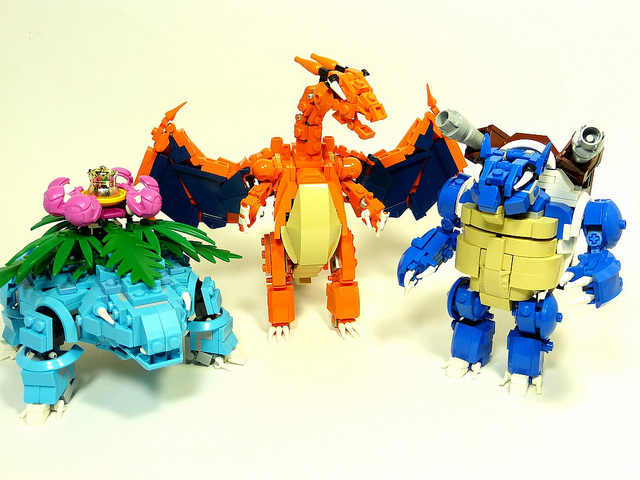





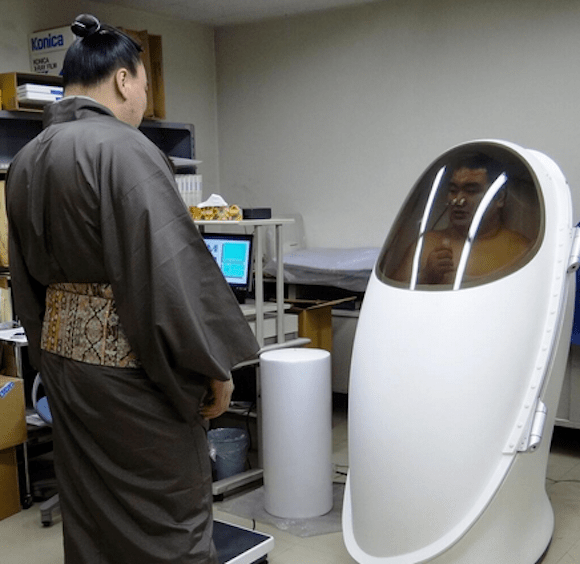


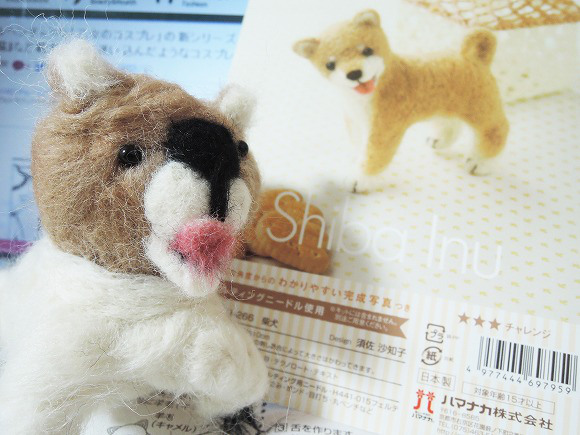

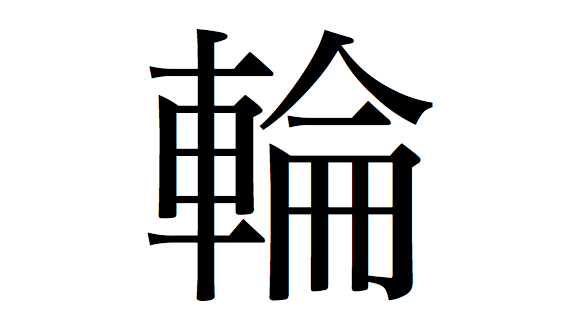



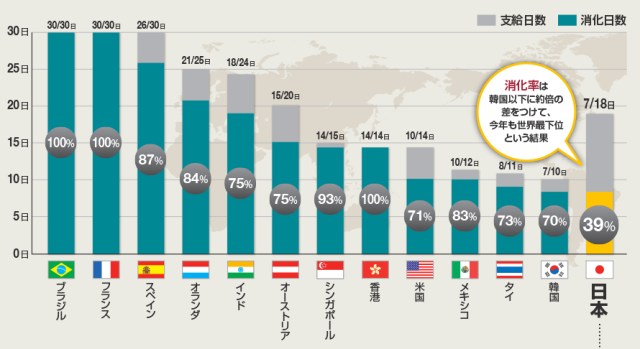
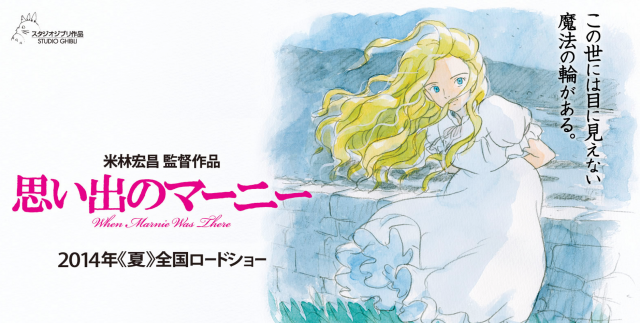

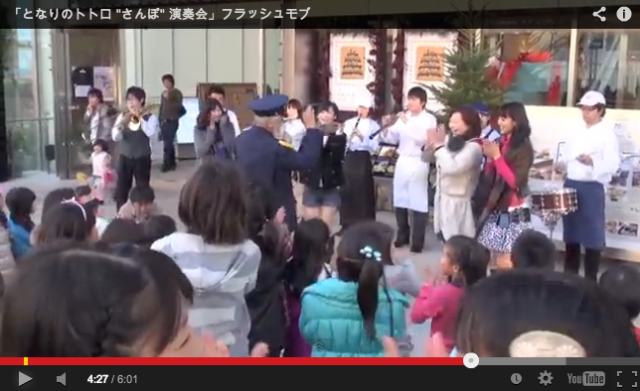

 Starbucks Japan releases new sakura goods and drinkware for cherry blossom season 2026
Starbucks Japan releases new sakura goods and drinkware for cherry blossom season 2026 Foreign tourists in Japan will get free Shinkansen tickets to promote regional tourism
Foreign tourists in Japan will get free Shinkansen tickets to promote regional tourism New zombie ship sets sail in Japan, includes Shinkansen tickets and all-you-can-eat sushi
New zombie ship sets sail in Japan, includes Shinkansen tickets and all-you-can-eat sushi Starbucks Japan unveils new sakura Frappuccino for cherry blossom season 2026
Starbucks Japan unveils new sakura Frappuccino for cherry blossom season 2026 Japanese convenience store with customer showers proves they really do have everything【Photos】
Japanese convenience store with customer showers proves they really do have everything【Photos】 Kyoto’s THICKEST ramen is crazy and crazy-delicious【Taste test】
Kyoto’s THICKEST ramen is crazy and crazy-delicious【Taste test】 Testing Japan’s fluffy mayonnaise pancake cooking hack【SoraKitchen】
Testing Japan’s fluffy mayonnaise pancake cooking hack【SoraKitchen】 Room 404: What happened when we stayed in an unlucky hotel room in Japan
Room 404: What happened when we stayed in an unlucky hotel room in Japan Let’s try out some paper “underwear for a travel” from the 100-yen store!
Let’s try out some paper “underwear for a travel” from the 100-yen store! New Family Mart cinema opens inside Japanese airport
New Family Mart cinema opens inside Japanese airport Japan’s newest Shinkansen has no seats…or passengers [Video]
Japan’s newest Shinkansen has no seats…or passengers [Video] Foreigners accounting for over 80 percent of off-course skiers needing rescue in Japan’s Hokkaido
Foreigners accounting for over 80 percent of off-course skiers needing rescue in Japan’s Hokkaido Super-salty pizza sends six kids to the hospital in Japan, linguistics blamed
Super-salty pizza sends six kids to the hospital in Japan, linguistics blamed Take a trip to Japan’s Dododo Land, the most irritating place on Earth
Take a trip to Japan’s Dododo Land, the most irritating place on Earth Downloads of 39-year-old Guns N’ Roses song increase 12,166 percent thanks to Gundam
Downloads of 39-year-old Guns N’ Roses song increase 12,166 percent thanks to Gundam Can you eat lunch in Tokyo for less than 500 yen?
Can you eat lunch in Tokyo for less than 500 yen? A look back on 40 years of Japanese schools banning stuff
A look back on 40 years of Japanese schools banning stuff Starbucks Japan releases new drinkware and goods for Valentine’s Day
Starbucks Japan releases new drinkware and goods for Valentine’s Day Japan releases first official sakura cherry blossom forecast for 2026
Japan releases first official sakura cherry blossom forecast for 2026 Archfiend Hello Kitty appears as Sanrio launches new team-up with Yu-Gi-Oh【Pics】
Archfiend Hello Kitty appears as Sanrio launches new team-up with Yu-Gi-Oh【Pics】 China’s don’t-go-to-Japan warning looks to be affecting tourist crowds on Miyajima
China’s don’t-go-to-Japan warning looks to be affecting tourist crowds on Miyajima Is China’s don’t-go-to-Japan warning affecting the lines at a popular Tokyo gyukatsu restaurant?
Is China’s don’t-go-to-Japan warning affecting the lines at a popular Tokyo gyukatsu restaurant? Survey asks foreign tourists what bothered them in Japan, more than half gave same answer
Survey asks foreign tourists what bothered them in Japan, more than half gave same answer Japan’s human washing machines will go on sale to general public, demos to be held in Tokyo
Japan’s human washing machines will go on sale to general public, demos to be held in Tokyo We deeply regret going into this tunnel on our walk in the mountains of Japan
We deeply regret going into this tunnel on our walk in the mountains of Japan Studio Ghibli releases Kodama forest spirits from Princess Mononoke to light up your home
Studio Ghibli releases Kodama forest spirits from Princess Mononoke to light up your home Major Japanese hotel chain says reservations via overseas booking sites may not be valid
Major Japanese hotel chain says reservations via overseas booking sites may not be valid Put sesame oil in your coffee? Japanese maker says it’s the best way to start your day【Taste test】
Put sesame oil in your coffee? Japanese maker says it’s the best way to start your day【Taste test】 No more using real katana for tourism activities, Japan’s National Police Agency says
No more using real katana for tourism activities, Japan’s National Police Agency says Starbucks Japan reveals new sakura drinkware collection, inspired by evening cherry blossoms
Starbucks Japan reveals new sakura drinkware collection, inspired by evening cherry blossoms Kyoto’s THICKEST ramen is crazy and crazy-delicious【Taste test】
Kyoto’s THICKEST ramen is crazy and crazy-delicious【Taste test】 Testing Japan’s fluffy mayonnaise pancake cooking hack【SoraKitchen】
Testing Japan’s fluffy mayonnaise pancake cooking hack【SoraKitchen】 Room 404: What happened when we stayed in an unlucky hotel room in Japan
Room 404: What happened when we stayed in an unlucky hotel room in Japan Let’s try out some paper “underwear for a travel” from the 100-yen store!
Let’s try out some paper “underwear for a travel” from the 100-yen store! New Family Mart cinema opens inside Japanese airport
New Family Mart cinema opens inside Japanese airport Watch an 80-year-old toymaker handcraft beautiful, retro wooden toys
Watch an 80-year-old toymaker handcraft beautiful, retro wooden toys How to make a cartoon cheesecake that looks like Swiss cheese
How to make a cartoon cheesecake that looks like Swiss cheese Hooters closing original location in Japan as large-chested chain’s downsizing continues
Hooters closing original location in Japan as large-chested chain’s downsizing continues Ghibli Park raises ticket prices, announces Howl area opening date, carousel with ridable Yakul
Ghibli Park raises ticket prices, announces Howl area opening date, carousel with ridable Yakul How to make a beautiful matcha cheesecake using a microwave, toaster oven, and hardly any effort
How to make a beautiful matcha cheesecake using a microwave, toaster oven, and hardly any effort How to make fancy matcha sake chocolates with just 15 minutes of real work【Recipe】
How to make fancy matcha sake chocolates with just 15 minutes of real work【Recipe】